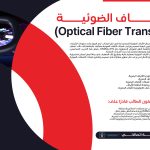Overview:
The Radio and Microwave Engineering course provides a comprehensive understanding of the fundamental principles of radio technology and microwave communications, along with their impact on modern telecommunications. The course covers both theoretical foundations and practical applications in the field of wireless communications, focusing on the design and development of radio and microwave systems. This course is essential for engineers and technicians looking to enhance their skills in the design and operation of communication systems.
Course Objectives:
- To provide a thorough understanding of the principles of radio and microwave engineering.
- To teach participants how to design and analyze radio and microwave systems.
- To enable trainees to apply signal processing techniques and analysis.
- To familiarize participants with measurement equipment and testing systems in telecommunications.
- To enhance knowledge of modern technologies used in radio and microwave engineering.
Training Content:
- Introduction to Radio and Microwave Engineering:
- History and evolution of radio technologies.
- Differences between radio waves and microwaves.
- Modern applications of microwave radio.
- Fundamental Principles of Radio:
- Concepts of electromagnetic radiation.
- Frequencies and wavelengths.
- Principles of propagation and interference.
- Microwave Systems:
- Design and analysis of microwave circuits.
- Types of antennas and their applications.
- Measurement tools and instruments for microwaves.
- Radio Signal Analysis:
- Digital signal processing techniques.
- Fourier transforms and spectral analysis.
- Signal encoding and decoding.
- Designing Communication Systems:
- Designing radio transmission and reception systems.
- Managing signal and frequency interference.
- Applications of wideband and multiple access techniques.
- Measurement and Testing Tools:
- Microwave measurement devices.
- Measurement techniques used to evaluate system performance.
- Data analysis and interpretation of measurement results.
- Modern Technologies in Radio Engineering:
- Advanced wireless networks (Wi-Fi, Bluetooth).
- Cellular communications and fifth-generation technology (5G).
- Radar applications and remote sensing technologies.
- Safety and Standards in Telecommunications:
- Safety standards for using radio and microwave devices.
- Regulations and guidelines related to wireless communications.
- Compliance with international and local standards.
- Practical Projects and Case Studies:
- Implementing a radio system design project.
- Real-world case studies from the telecommunications industry.
- Evaluating and analyzing radio and microwave systems.
Target Audience:
- Communication engineers and technicians.
- Students in electrical and electronics engineering.
- Information technology and telecommunications professionals.
- Anyone interested in gaining skills in the design and operation of radio and microwave systems.
- Engineers working in wireless communications and frequency-related fields.
This course is suitable for all levels, from beginners to advanced participants, offering a blend of theoretical knowledge and practical experience in the field of radio and microwave engineering.






